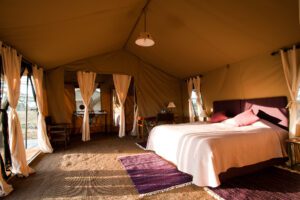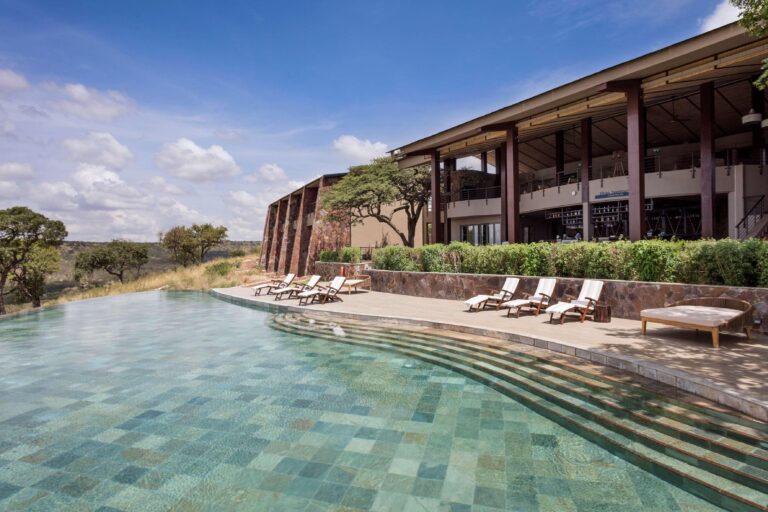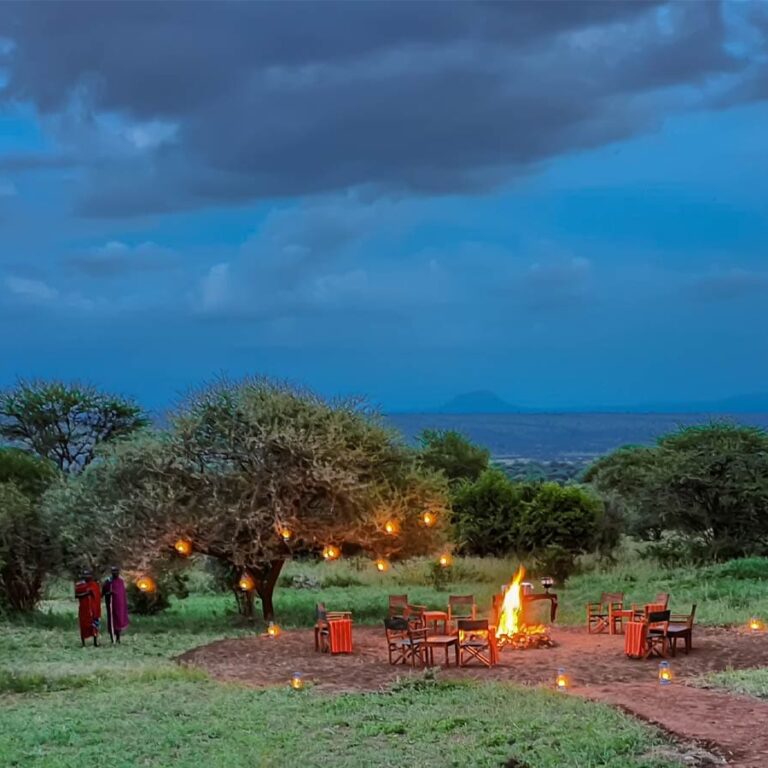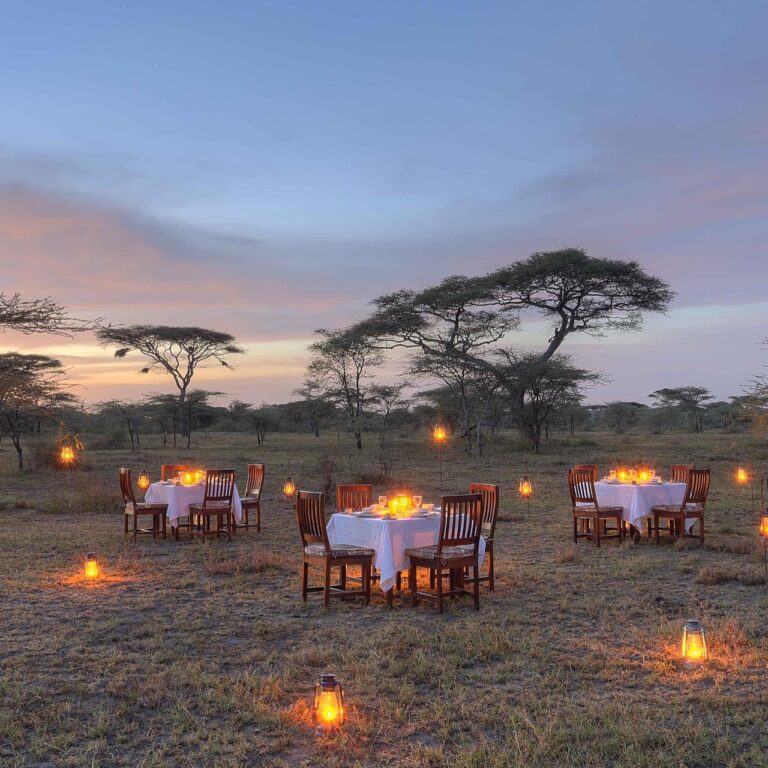To plan an amazing African safari, first determine your budget, preferred wildlife, and travel time. Then, research and choose your destination and the type of safari that suits you. Next, book flights, secure visas and vaccinations, and purchase travel insurance. Pack light with layers including long-sleeved shirts, pants, a fleece, and a rain jacket, plus essentials like binoculars and sun protection. Finally, work with a specialist tour operator to arrange your accommodation and guide, ensuring you get the most out of your once-in-a-lifetime trip.
An African safari represents the epitome of adventure, offering a once-in-a-lifetime opportunity to witness nature’s grandeur firsthand. The continent’s diverse landscapes, teeming wildlife, and rich cultural heritage combine to create an unparalleled experience. However, planning the perfect African safari requires careful thought, consideration, and preparation. Whether you’re looking to explore the vast savannas of the Serengeti, witness the Great Migration, or embark on a thrilling jungle trek, this comprehensive guide provides everything you need to know to make your safari unforgettable. Book amazing African family, honeymoon/couples, seniors, solo, luxury, mid-range, budget, wildlife safari packages, holiday, adventures, expeditions, reviews, costs, trips, all-inclusive.
Choosing the Best African Safari Destinations
To plan an amazing safari in Africa, consider these destinations: Serengeti for the Wildebeest Migration and vast plains; Ngorongoro Crater for easily spotted wildlife in a unique caldera; Tarangire for large elephant herds and iconic baobab trees; Lake Manyara for tree-climbing lions and birdlife; Arusha Park as a convenient starting point with diverse landscapes and wildlife; Lake Eyasi for cultural experiences with local tribes; and Zanzibar for a relaxing beach finale after your safari adventure. Tanzania stands out as one of Africa’s premier safari destinations, offering a diverse range of national parks and conservation areas, each with its own unique charm and a wealth of wildlife. Here’s a look at some of the top spots
Serengeti National Park: The Serengeti is arguably the most famous safari destination in the world, renowned for the Great Migration, where millions of wildebeest, zebras, and other herbivores traverse the plains in search of fresh grazing lands. It’s top destinations for African Safaris are also home to a high concentration of predators, making for thrilling game drives.
Ngorongoro Conservation Area: This UNESCO World Heritage site features the stunning Ngorongoro Crater, a collapsed volcanic caldera that is home to an incredible density of wildlife. It’s one of the best places to see the Big Five (lion, leopard, elephant, rhino, and buffalo) in a single day.
Lake Manyara National Park: Famous for its tree-climbing lions and large flocks of flamingos, Lake Manyara offers a diverse landscape, from lush forests to the soda lake itself. It’s a fantastic spot for birdwatching and seeing a wide array of wildlife in a smaller, more accessible area.
Arusha National Park: Located near the city of Arusha, this park is a great option for a day trip. It features the majestic Mount Meru, and offers opportunities for walking safaris and canoeing, a unique way to experience the park’s wildlife, including giraffes, zebras, and various primates.
Lake Eyasi: Home to the Hadzabe tribe, one of the last remaining hunter-gatherer communities in Africa. A visit here offers a fascinating cultural experience, allowing you to learn about their ancient way of life.
Zanzibar: After the dust of the safari, many travelers opt to relax on the pristine beaches of Zanzibar. This island paradise offers stunning turquoise waters, historical Stone Town, and a vibrant spice trade history, making it the perfect end to a Tanzanian adventure.
Best Time to Go on an African Safari
The best time for an African safari is typically the dry season (June to October), when animals gather around water sources and sparse vegetation improves visibility. However, the wet/green season (November to May) offers lush landscapes, baby animals, fewer crowds, lower prices, and excellent birdwatching opportunities. The ideal time also depends on your specific destination and what you want to see, such as the Masai Mara migration (June to October) or the wildebeest calving (late January to February). The best time to go on a safari largely depends on what you want to see and the weather conditions you prefer.
Dry Season (June to October): This is the most popular time for a safari. The vegetation is sparse, making it easier to spot animals as they gather around water sources. It’s also the peak season for the Great Migration in the Serengeti. The weather is generally sunny and cool, with lower chances of rain. However, this is also the busiest and most expensive time to travel.
Green Season (November to May): The landscape is lush and green, and the air is clear, making for excellent photography. This is the low season, meaning fewer crowds and lower prices. It’s also the calving season for wildebeest in the Serengeti (January to February), a time when you can witness baby animals taking their first steps, and predator-prey interactions are frequent. Although there’s a higher chance of rain, it often comes in short, heavy bursts, and the sun shines for most of the day. For an exciting and enthralling African Safari, a 5–7-day and 10–14-day safari is the ideal duration to experience the highlights, including exciting game drives, spectacular wildlife, and stunning landscapes.
Choosing the Right African Safari Type
To plan an amazing African safari, determine your budget, preferred style (e.g., luxury lodge, budget camping, mobile camping, self-drive), and desired activities like game drives, walking, or balloon safaris. Research the right country and parks for your interests, consider visiting during shoulder seasons for potential cost savings, and book with reputable operators. Essential planning steps include booking flights well in advance, packing light, and respecting wildlife and local guides. Your safari experience can be tailored to your preferences, budget, and desired level of adventure.
Lodge Safari: This is the most common and comfortable option. You’ll stay in permanent lodges or luxury tented camps with amenities like en-suite bathrooms, comfortable beds, and sometimes even swimming pools during your private, custom-tailor-made luxury African Safari. Game drives are done in 4×4 vehicles, offering a classic and luxurious safari experience.
Mobile Camping Safari: For a more authentic and immersive experience, a mobile camping safari is a great choice. The camp moves with you, often following the Great Migration. You’ll sleep in comfortable tents with beds and en-suite bathrooms, but you’ll be closer to nature. This option provides a more intimate and adventurous feel. Multi-day African Safari packages on A Budget usually include accommodation, food, and game drives
Walking Safari: A walking safari is an incredible way to experience the bush on foot. Accompanied by an armed guide, you’ll learn about the smaller details often missed from a vehicle, such as animal tracks, medicinal plants, and birdlife. It’s a more active and intimate way to connect with the environment.
Specialized Safari: amazing and top-most things to do on an African Safari, and consider a photographic safari for avid photographers, a family safari with activities for all ages, or a honeymoon safari for a romantic getaway.
Preparing for Your Safari: Essential Packing List
For a fantastic African safari, pack neutral-colored, lightweight clothing layers, comfortable walking shoes, a wide-brimmed hat, sunglasses, and sunscreen to protect from the sun and insects. Essentially, the complete African Safari guide gear includes binoculars, a camera with accessories, a power adapter, a basic first-aid kit, and a soft-sided duffel bag for your luggage. Remember a reusable water bottle and to avoid bright colors, especially dark blues, as they attract biting tsetse flies. Packing light is key, as most safari flights have strict luggage weight limits (often around 15 kg/33 lbs). Use a soft-sided bag rather than a hard suitcase.
Clothing: Choose neutral colors like khaki, brown, and green to blend in with the environment and avoid attracting insects. Pack layers—mornings and evenings can be cool, while days are hot. Include long-sleeved shirts and trousers to protect from the sun and insects. Footwear: Comfortable, closed-toe shoes or hiking boots are a must for walking safaris or evening strolls around the camp.
Headwear and Sun Protection: A wide-brimmed hat, sunglasses, and high-SPF sunscreen are essential for protection against the African sun. Gear: A good pair of binoculars is non-negotiable for spotting distant wildlife. A camera with a telephoto lens will help you capture incredible shots. Don’t forget extra batteries and memory cards! Health and Safety: A basic first-aid kit, insect repellent with DEET, and any personal medications you need are crucial. Consult your doctor about required vaccinations and malaria prophylaxis. Documents: Passport, visas (if required), flight tickets, and travel insurance documents. Keep photocopies in a separate bag or on your phone.
Safari Etiquette: How to Respect Wildlife and the Environment
To have an ethical and amazing African safari, prioritize the well-being of wildlife and the environment by following your guide’s instructions, staying in the vehicle, maintaining a respectful distance from animals, never feeding them, and keeping quiet to avoid startling them. Support conservation efforts by paying park fees, avoiding single-use plastics, disposing of all trash properly, and respecting local regulations, such as staying on designated paths, one of the top things to expect on your first African Safari. Your safari is not just a holiday; it’s a privilege to witness nature’s spectacle. Following proper etiquette ensures a safe and respectful experience for both you and the animals.
Keep Your Distance: Never get out of the vehicle unless your guide says it’s safe. Animals are wild and unpredictable. Do not approach them on foot. Stay Quiet: Loud noises can stress and scare animals. Speak in hushed tones and turn off your phone’s ringer. Don’t Feed Animals: Feeding wild animals can make them dependent on humans and disrupt their natural behavior. It’s dangerous for both them and you. Leave No Trace: Take all your rubbish with you. Leave the environment exactly as you found it. Listen to Your Guide: Your safari guide is a professional with extensive knowledge of the area and animal behavior. Their instructions are for your safety and the well-being of the wildlife.
Book with a African Safari Specialist
To plan an amazing African safari, book with an expert safari specialist like Foot Slopes Tours and Safaris Tanzania Specialist for an expert Africa, who can offer personalized itineraries to destinations such as Tanzania’s Serengeti and Ngorongoro Crater. The world’s leading tailor-made Safari Company. Choose a region and time of year based on your interests, like the Great Wildebeest Migration or climbing Kilimanjaro. Book well in advance, and confirm your passport is valid and that you have the necessary immunizations and visas. Booking with a reputable safari specialist or tour operator is one of the most important decisions you’ll make. They have the expertise to:
Customize your itinerary: They can tailor your trip to your specific interests, budget, and travel style. Provide expert guides: A knowledgeable and passionate guide can make or break your safari experience. Handle logistics: From booking flights and accommodations to arranging permits and transfers, a specialist takes care of all the details, leaving you free to enjoy your trip. Ensure safety: They work with reputable camps and guides who prioritize safety and ethical practices.
Book Flights for an African Safari
Once your safari itinerary is set, it’s time to book your flights. For safaris in Tanzania, you’ll likely fly into Kilimanjaro International Airport (JRO) for the Northern Circuit or Dar es Salaam’s Julius Nyerere International Airport (DAR) for other parts of the country. Domestic flights connect these hubs to smaller airstrips near the parks. Book these well in advance, especially during peak season.
Tip: What do you do on an African safari? On an African safari, you typically go on guided game drives in 4×4 vehicles, walking safaris, and boat safaris to observe wildlife like the Big Five, but you can also experience activities like hot air balloon rides, cultural tours, primate trekking, and conservation work. A typical day involves morning and late afternoon wildlife viewing, with time for relaxation at the lodge or camp, enjoying local food, and learning about the environment and culture.
Get Your African Safari Travel Essentials Ready
To plan an amazing African safari, focus on practical preparation: book flights and accommodation, consult your doctor for required vaccinations and malaria precautions well in advance, obtain necessary visas, secure comprehensive travel insurance, and pack neutral-colored, multi-layered clothing suitable for day and night. Other essential items include comfortable walking shoes, sunglasses, a wide-brimmed hat, sunscreen, insect repellent, a camera, and a first-aid kit.
Travel Insurance: Don’t travel without it. Ensure your policy covers medical emergencies, trip cancellation, and safari-related activities. Visa and Passport: Check the visa requirements for your nationality well in advance. Make sure your passport is valid for at least six months beyond your planned departure date and has a few empty pages for stamps. Vaccinations: Consult a travel clinic or doctor to discuss recommended vaccinations and malaria prevention.
Stay Hydrated during an Amazing African Safari
To plan an amazing African safari, Epic African Big 5 Tours and Safaris recommend staying hydrated by drinking water frequently, carrying a refillable bottle, and using electrolyte supplements, especially in hot weather. Also, wear a wide-brimmed hat, avoid diuretics, eat hydrating foods, and stay in the shade when possible. Consider traveling with a reliable tour operator who can provide access to safe drinking water. The African sun can be intense. It’s crucial to drink plenty of water throughout the day to avoid dehydration. Your guide will provide bottled water in the safari vehicle, but it’s a good idea to carry a reusable water bottle.
Highlight: To plan a successful first African safari, you must research destinations, determine the best time to visit based on desired wildlife viewing, choose a reputable tour operator, book well in advance, and secure comprehensive travel insurance. Also, prepare for health requirements like vaccinations, pack essential gear, and learn basic local customs for a respectful and enriching experience.
Be Prepared for Dust
To plan an African safari and prepare for dust, wear light, neutral-colored, long-sleeved shirts and pants, a wide-brimmed hat, and sunglasses. Bring a bandana or face mask for dust protection and a scarf or buff. For your gear, use lens hoods and protect your camera with a rain cover or plastic bag. Safari roads are often unpaved and can be very dusty, especially during the dry season. A bandana or scarf can be useful to cover your mouth and nose. Protect your camera gear from dust by keeping it in a sealed bag when not in use.
Tip: On an African safari, expect early mornings and evenings for game drives. A typical day on an African safari involves spotting active wildlife like lions, elephants, and giraffes. You’ll spend the intense midday heat relaxing at lodges or tented camps, enjoying meals and scenery. Be prepared for potential bumpy rides, exposure to the sun and dust, cold mornings and evenings, and an environment where animals are free-roaming, so sightings aren’t guaranteed but are worth the wait. Cultural experiences, photography, and unique accommodations like tented camps are also common elements of a safari.
Communicate with Your African Safari Guide
To effectively communicate with your safari guide and plan an amazing African Safari trip, do your research and clearly define your safari goals, including desired activities, budget, and travel style. During the safari, trust your guide’s expertise, remain attentive to their instructions, and don’t hesitate to ask questions about wildlife or local culture. Remember to express gratitude and follow safari etiquette, such as wearing neutral clothing and avoiding disruptive behaviors like clapping or whistling. Your guide is your most valuable resource. Don’t hesitate to communicate your interests and needs. If you have a specific animal you’re hoping to see, a question about a plant, or need a bathroom break, just let them know. Their goal is to make your safari as enjoyable as possible.
Enjoy the African Safari Moment
Amidst the excitement of spotting a lion or a leopard, remember to put your camera down and simply savor the moment. The sounds of the bush, the vastness of the landscape, and the feeling of being in the wild are what make a safari truly magical. Take a plan an amazing African Safari, deep breath, listen to the call of a distant bird, and let the beauty of Africa wash over you. Planning a memorable African safari requires careful thought and preparation, but the rewards are immeasurable. By following this guide, you’ll be well on your way to creating memories that will last a lifetime.
Don’t spend the whole trip behind a camera. Take moments to put the lens down and look with your eyes during your incredible African Safari Tour and vacation packages. Embrace the early mornings, slow drives, and quiet moments by the fire. Let go of the pressure to “see everything.” Nature unfolds at its own pace. Write in a journal, stargaze, or simply listen to the sounds of the African night. A safari is not just a holiday—it’s a transformational experience that stays with you forever.
Conclusion
An African safari is a life-changing adventure that allows you to plan an amazing African Safari you and witness the planet’s most breathtaking wildlife in their natural habitat. From choosing the best destination to preparing for the journey and respecting local customs, every detail contributes to an unforgettable African Safari experience. Whether you’re an animal enthusiast, a photographer, or a nature lover, Africa offers an array of safari experiences that will leave you with memories to cherish for a lifetime.








